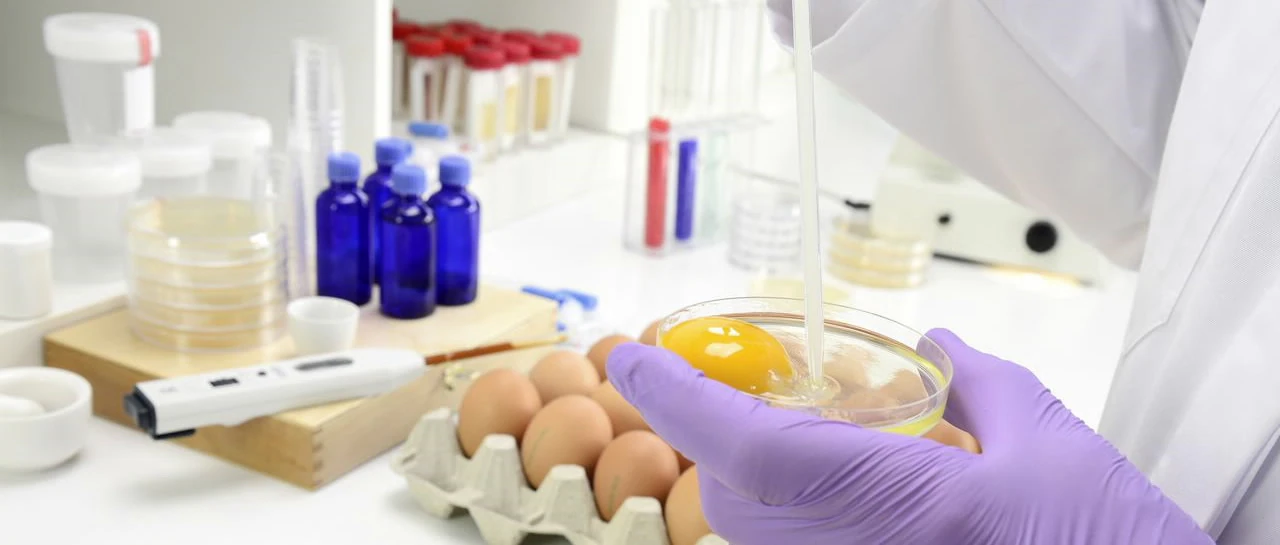ISO 59371 Emulsifier Residue Profiling in Bakery Products
The use of emulsifiers in bakery products is a common practice aimed at improving texture, shelf life, and overall quality. However, the presence of excessive or improperly used emulsifiers can pose health risks and lead to product recalls. ISO 59371 provides a standardized method for profiling emulsifier residues in bakery products, ensuring compliance with food safety regulations.
The process involves several critical steps: sample preparation, extraction using appropriate solvents, derivatization if necessary, and finally, analysis through advanced chromatographic techniques such as liquid chromatography-tandem mass spectrometry (LC-MS/MS). This method allows for the precise quantification of emulsifier residues down to parts per million levels.
The significance of this service lies in its ability to ensure product safety and compliance with international standards. By adhering to ISO 59371, food manufacturers can demonstrate their commitment to quality and consumer protection. This is particularly important given the increasing scrutiny from regulatory bodies and consumers alike regarding the use of additives in food products.
The methodology described by ISO 59371 ensures accurate and reproducible results across different laboratories. This is crucial for maintaining consistency in product quality and ensuring that any detected residues are due to natural variation rather than contamination or improper formulation.
For quality managers and compliance officers, this service offers a robust tool for monitoring the integrity of their supply chain. By regularly testing products using ISO 59371, they can proactively address potential issues before they become widespread problems.
R&D engineers benefit from this profiling technique by gaining insights into how emulsifiers interact with other ingredients in bakery products. This knowledge is invaluable for optimizing formulations and developing new product lines that meet both regulatory requirements and consumer expectations.
Procurement teams can leverage the results of these tests to ensure that only high-quality raw materials are used, further enhancing the overall safety and quality of their end products.
- Sample Preparation: Properly prepared samples are crucial for accurate analysis. This includes homogenization of bakery products followed by appropriate dilution if necessary.
- Extraction Solvents: Suitable solvents must be selected based on the specific emulsifiers being targeted to ensure complete extraction without interfering with subsequent analytical steps.
Eurolab Advantages
At Eurolab, we pride ourselves on providing comprehensive and reliable testing services that go beyond mere compliance. Our expertise in food additives and preservatives testing ensures that our clients receive accurate results every time.
- State-of-the-Art Facilities: Equipped with cutting-edge technology, our laboratories offer precise and repeatable analysis.
- Experienced Technicians: Our team comprises highly skilled professionals who are well-versed in the latest testing techniques and standards.
- Dedicated Customer Support: We understand that each client has unique needs, which is why we offer personalized support throughout the testing process.
Quality and Reliability Assurance
The reliability of our testing services is paramount. To ensure this, we follow stringent quality control measures at every stage of the analytical process:
- Sample Selection: Careful selection of samples ensures that they are representative of the batch or lot being tested.
- Standard Operating Procedures: Adherence to standardized protocols minimizes variability and enhances accuracy.
- Internal Audits: Regular audits help identify areas for improvement and maintain high standards of performance.
Use Cases and Application Examples
- Product Development: During the formulation stage, profiling emulsifier residues helps in optimizing recipes for better texture and longer shelf life.
- Quality Control: Regular testing ensures that products meet strict quality standards set by regulatory bodies like the FDA or EU authorities.
- Investigations: In cases of suspected contamination, detailed profiling can pinpoint the source and extent of any issues.





